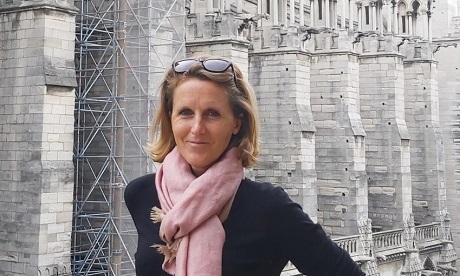In a quick turnaround from news reported last week, France’s bishops’ conference says it will uphold the confessional seal, regardless of what has been confessed.
Last week it was widely reported that the conference would break the seal in abuse cases.
“One cannot change the canon law for France as it is international. A priest who today would violate the secrecy of the confession would be excommunicated,” says Karine Dalle (pictured), the communications director of the French bishops’ conference.
“This is what Archbishop Moulins-Beaufort wanted to say last week after the publication of the Sauvé report, when he said that the seal of confession was above the laws of the Republic,” she says.
In no way did he say the seal of the confessional could or would be broken, Dalle emphasises.
De Moulins-Beaufort, who is the president of the French bishops’ conference, did say, however, that protecting children is an “absolute priority” for the Catholic Church.
“He spoke the truth, but this truth is not audible in France for those who are not Catholic, and not understandable in France in the midst of debates on so-called ‘religious separatism,’” Dalle says.
Last week it seemed a French radio station reported bishops’ conference president Moulins-Beaufort as saying protecting children from sexual abuse overrules confessional secrecy.
The radio also announced that the archbishop had conceded that priests should inform police of admissions of abuse made by penitents during confession, after meeting with French interior minister Gérald Darmanin.
The reports about breaking the confessional seal provoked consternation among Catholics.
While French law has long recognized the Church’s strict rules about the confidentiality of the sacrament, the government is now contemplating amending the law for confessors. It has already pushed through changes to client confidentiality laws with lawyers and other secular professionals.
“If a lawyer or a doctor has knowledge of the abuse of a minor under 15 years of age, he or she is obliged not to respect professional secrecy. This is to prevent further crimes, because pedophile criminality is compulsive,” Dalle says.
“What Interior Minister Darmanin said is that in the future, the seal of confession could fit into this framework. It wouldn’t concern all confessional secrecy, of course, but I don’t know where that will lead.
“But if the state tells us [that priests must report crimes against minors revealed in confession] there would be an obligation to leave the secrecy of confession. This would mean that the priests concerned would be excommunicated by Rome.
“There will certainly be some adjustments proposed, which Rome will accept or not.
Among the report’s 45 recommendations was a request for the Church to reconsider whether to uphold the confessional seal in cases of abuse.
Source
- CNA
- CathNews
- Image: ESSCA Alumini
